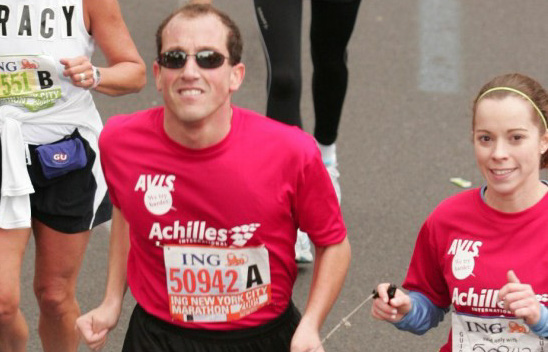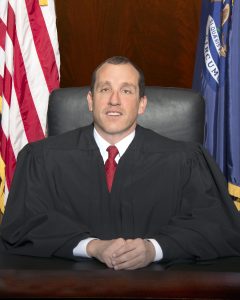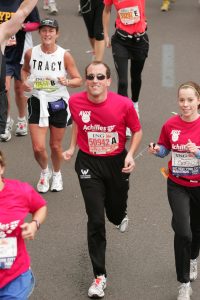
Justice Richard Bernstein: “It’s very hard to experience that feeling of not being welcomed”
Richard Bernstein serves as a Justice on the Michigan Supreme Court. He is the first blind state Supreme Court justice in the United States.
The Ruderman Family Foundation had the chance to talk with him over a few days about his disability, legislation, inclusion in the Jewish community and more. We have divided the interview into three parts. In part one, Justice Bernstein discusses his upbringing and sens of inclusion in the Jewish community.
Parts two and three will be posted soon.
Where did you grow up?
I was born in Detroit and I spent my entire childhood there.
Were you fully included in elementary and high school?
To the best that was possible and to the best that it could have been done. It was a different era. Inclusion wasn’t as much a focus as it is now. I spent the majority of my life in special ed classes in public school. I’d spend a good part of the day in Resource Center (for children with disabilities, the offer extra attention). When I wasn’t in the Resource Room, a para-professional accompanied me to classes so I could function.
Did your parents always approve of you being included or did they want you segregated?
At the end of the day, my family operated under the notion that inclusion was more significant & important than everything else. Academics and learning- I was raised that socialization was more critical than anything else. How you socialized and the people you socialized with was more important than anything else I would have to contend with.
Would you describe the Jewish community of your youth as inclusive or not?
When I was first born (1973) nobody knew what expectations were for a blind person. What would they accomplish and achieve…. Inclusion wasn’t really thought of. Expectations were different- a blind child back in 1973 was different than they are today.
One of most moving things for my mom was Rabbi Groner (from our synagogue) came to visit my mom and I in the hospital after I was born. Rabbi Groner said: “I can’t predict the future, I don’t know what’ll happen to your son, I don’t know how he’ll live….one thing I can promise you is that he will have a bar mitzvah!” For my mom that was a very profound statement! That really meant a tremendous amount to her. In life, you have to celebrate the small victories.
How can the Jewish community become more inclusive?
Change comes in slow, methodical steps but change can be real and everlasting if given the opportunity to do so. You can’t just wave a wand. Within any social movement that we have and that we participate in, you have to celebrate the strides that are made when they’re made. It’s easy to say we should do this and this and this- it’s more complex than that.
I think the Jewish community has done a great job in becoming more inclusive. It’s reflective of the times we’re in. In terms of where general society is, that’s where the Jewish community is going to be. There’s no distinction between Jewish and not Jewish community: the thing everyone wants more than anything is a feeling of being included. Nobody wants to be left by themselves, nobody wants to be alone.
For example, Florida has statutes related to wildlife- if you’re a marine operator (conducting research), and you house a dolphin, it has to be housed with another dolphin because they’re social creatures. If we have these rules for dolphins, then we need to think about people the same way.
There’s a Hillel day school in Michigan but I wouldn’t be able to attend – few Jewish schools make the necessary accommodations. It’s very hard to experience that feeling of not being welcomed or included. There’s nothing more difficult than having that. It’s not just about opportunities or accessibility- it’s about belonging to community.
My message is: Give a genuine sense of welcome to the community- that’s what it comes down to. When you organize events and activities, make sure everyone knows that they are welcome to participate.
In your estimation, can society ever become fully inclusive?
Yes I think it can. But you have to take incremental steps. One step at a time, push forward with each individual step. You have to work to reach goal as change comes in slow, methodical steps. But the most important thing is to stick with it- change can be real and everlasting.
Justice Bernstein will speak at the Ruderman Inclusion Summit in Boston November 1-2, 2015. To register for the Summit, click here. The deadline is October 15, 2015!
About the author David Bernstein is a consultant and communications adviser to the Ruderman Family Foundation. Follow him on Twitter @DavidLBernstein
Stay Included
To stay up to date on our most recent advocacy efforts, events and exciting developments, subscribe to our newsletter and blog!





















